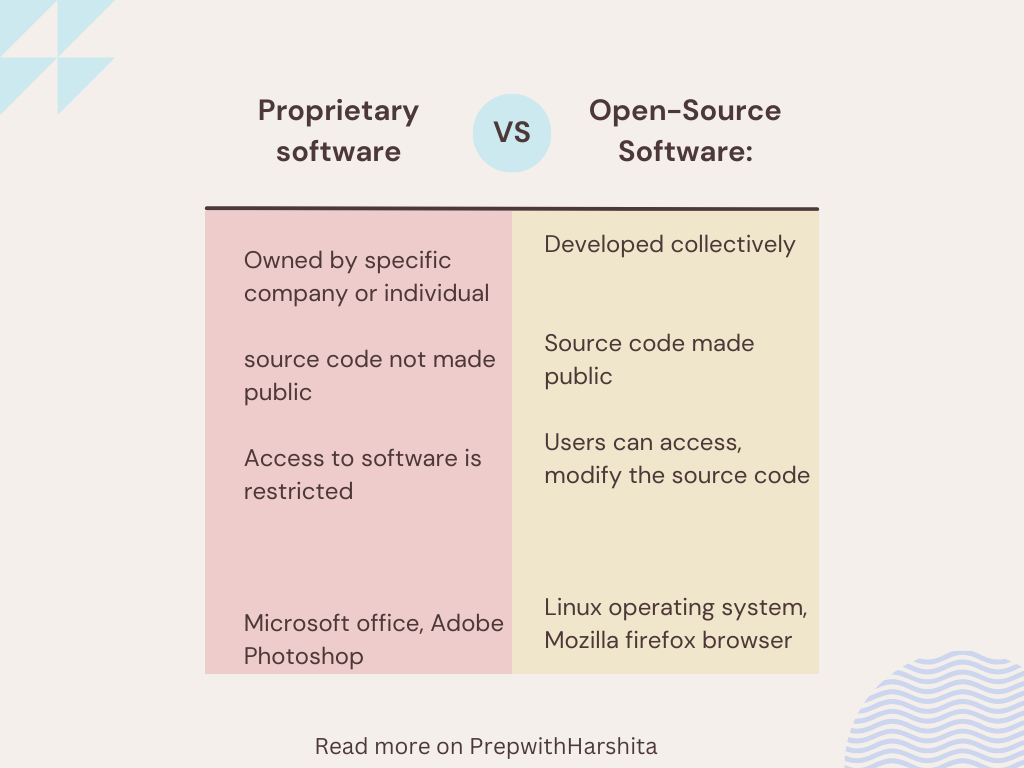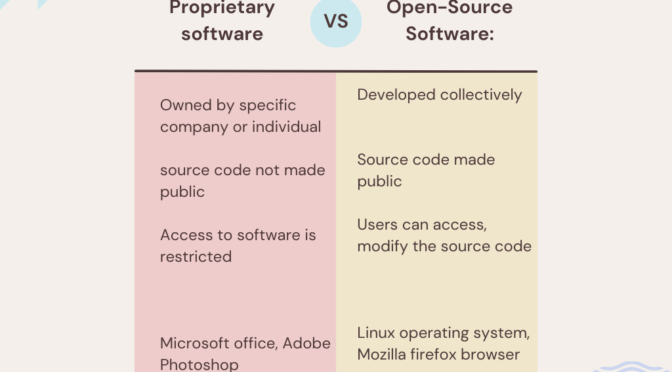Proprietary software and open-source software are two different approaches to the development, distribution, and licensing of software. Let’s learn more about the key characteristics of each:
Proprietary Software:
- Ownership: Proprietary software is owned by a specific company or individual. The source code is not made available to the public, and users typically receive only the compiled, executable version of the software.
- Distribution: Access to the software is usually restricted, and users often need to purchase a license to use, modify, or distribute the software. The terms and conditions of use are defined by the software’s owner or developer.
- Control: The development, modification, and distribution of proprietary software are controlled by the company or individual that owns the rights. Users have limited ability to customize the software or access its underlying code.
Open-Source Software:
- Ownership: Open-source software is typically developed collaboratively, and the source code is made available to the public. Ownership often lies with a community of developers rather than a single entity.
- Distribution: Users are free to view, modify, and distribute the source code. Open-source software is often distributed under licenses like the GNU General Public License (GPL), which allows users to freely use, modify, and distribute the software, often with the condition that any derivative works also be open source.
- Community Involvement: The development process is open to the public, encouraging collaboration and contribution from a diverse community of developers. This often leads to innovation, rapid bug fixing, and continuous improvement
Examples:
- Proprietary Software: Microsoft Office, Adobe Photoshop, and many commercial video games.
- Open-Source Software: Linux operating system, Apache web server, Mozilla Firefox browser, and the Apache OpenOffice suite.
Advantages and Disadvantages :
Both proprietary and open-source software have their advantages and disadvantages. Proprietary software may offer more polished and user-friendly experiences, but users have limited control. Open-source software provides greater transparency, flexibility, and community support but may require more technical expertise to use and customize. The choice between the two often depends on the specific needs and preferences of users or organizations.
Also Read : Plagiarism and Fair use

Also visit: Prep with Harshita


Best quality USA proxies – https://DreamProxies.com get with 50 discount!